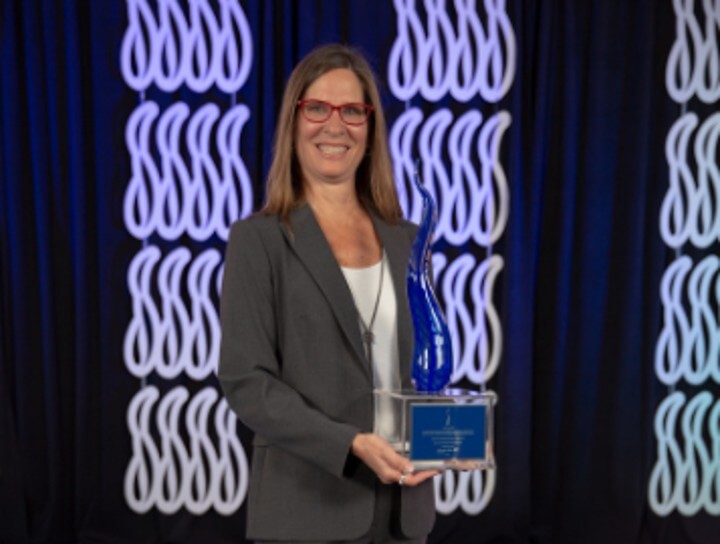

May 04, 2021
Drug and alcohol addiction rarely happen in a vacuum. The afflicted usually have other challenges. They are teens who lack awareness and education. Mothers who don’t have child care. Trauma survivors without counseling. Unemployed people who have no job training. And the recently incarcerated who lack all of the above and more.
DACCO has served people struggling with substance abuse since 1973 by offering customized wraparound services that treat the whole person, not just their addiction.
The Florida Blue Foundation gave a Sapphire Award in the organization category to DACCO this year for its excellence in mental well-being and opioids/substance abuse care. The foundation awarded a total of $500,000 to nine honorees focused on programs targeting food security, health care accessibility and mental well-being.
CEO Deanna Obregon said DACCO will use its $75,000 award to expand treatment access and engagement—perhaps using technology—to get more people the behavioral health care they need. There are substance abuse centers in many communities. What sets DACCO apart is its customized wraparound care.
The Tampa-based behavioral health center reaches over 30,000 people each year with prevention, intervention, treatment and mental health services. The center also provides treatment when patients have co-occurring mental health issues, like depression, anxiety or bipolar disorder. DACCO coordinates with community groups to provide support services to its patients, like housing, child welfare, employment assistance and GED preparation.
“We really try to work with patients where they’re at and what they’re coming in with,” Obregon said. “We make sure resources are easily available, so they’re not having to go to six different places to get care.”
Substance abuse has nagged at communities for as long as memory serves. How people deal with it has changed. One positive is the stigma of substance abuse and mental health has abated, Obregon said.
“It used to be taboo—you didn’t want to admit you had a substance abuse or mental health issue. Your family didn’t want to talk about it,” she said.
Now, people are more aware, educated and willing to reach out.
What addiction looks like has also changed over time. Each decade seems to bring a new crisis to the forefront. Over time, communities have weathered the cocaine epidemic, veteran suicides, pill mills and the opioid crisis. Part of DACCO’s effectiveness has come from working with community partners to identify new needs, and then adjusting services to meet those needs, Obregon said.
In recent years, Hillsborough County Public Schools asked DACCO to provide a program that teaches students about prescription drug abuse. DACCO partnered with a tech company to produce RxSmart, a digital course that’s now part of the county’s ninth-grade health curriculum.
In the wake of the Parkland High School mass shooting in 2018, Hillsborough schools asked DACCO for mental health education. DACCO responded with Mental Health Basics, a program that teaches students how to care for their mental health, recognize warning signs of a problem and reach out for help.
The battle to tame mental health challenges and opioid addiction had been going well, Obregon said. Then, COVID-19 put everyone in a different place. The social isolation and job losses stressed the community’s collective well-being.
“Human beings are not built to be alone,” Obregon said. “It’s in our DNA to be part of a community, part of a pack. So, we’re seeing an uptick in mental health issues, substance abuse and alcohol abuse.”
It’s perhaps fortunate that addiction and behavioral health treatment has seen another recent trend—a push for more support through partnerships.
“I don’t think this is any one person’s issue,” Obregon said of COVID-19’s mental health fallout. “It’s the community’s issue. And we’re seeing the community start to come together.”